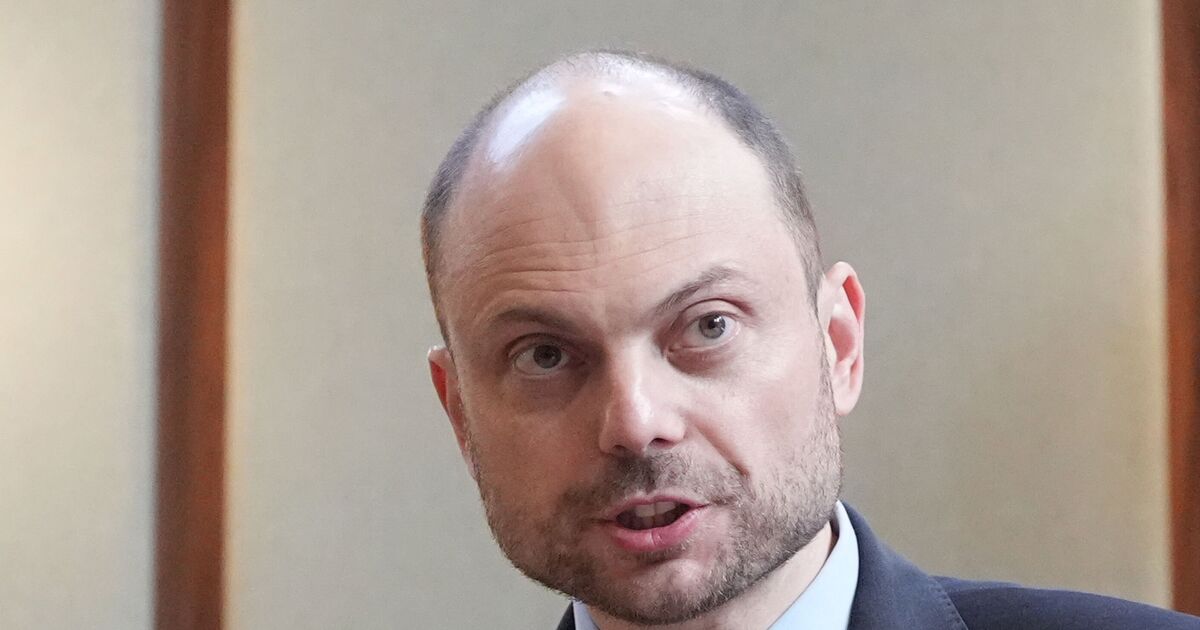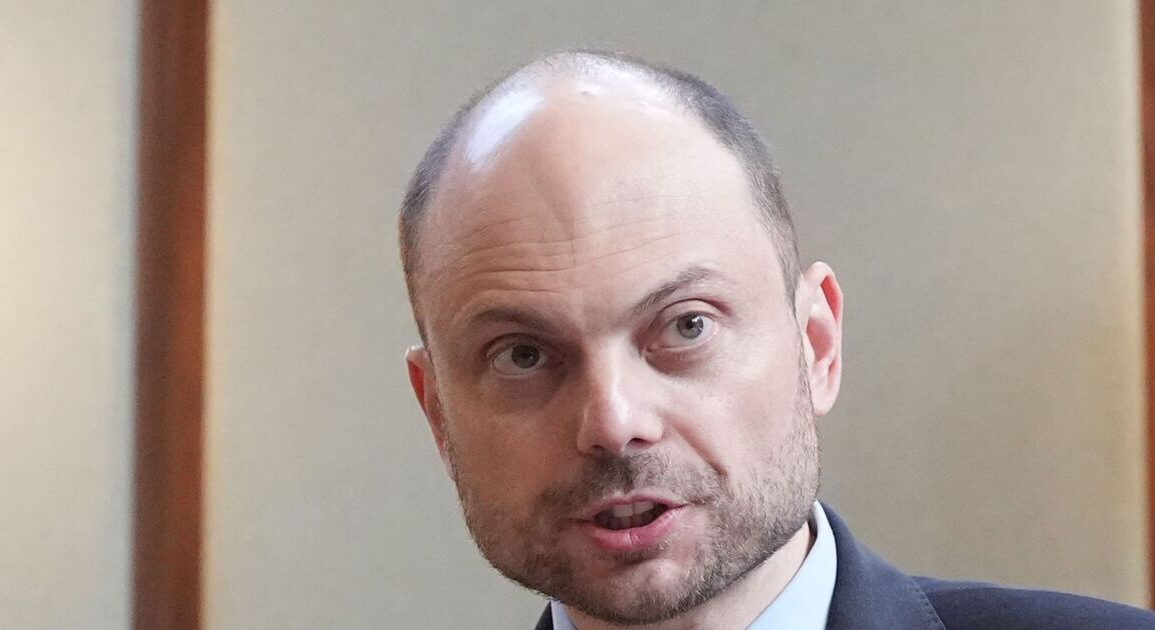
A British citizen who spent almost a year in solitary confinement in Vladimir Putin’s toughest gulag has revealed what he found most difficult during his punishing stint in captivity.
Dissident Vladimir Kara-Murza was locked up for 23-and-a-half hours a day in solitary confinement after speaking out against dictator Russia’s invasion of Ukraine.
Kara-Murza was released last month after the US brokered a prison deal with the Kremlin, and now he has touched down again in the UK. He said he had started talking to the walls while “no longer understanding what was real and what was imaginary”.
He reckons the historic deal saved his life as the death of fellow dissident Alexei Navalny in February, described as a Kremlin-orchestrated murder by Kara-Murza, showed the danger he was in.
He told the Independent: “Mentally, psychologically, emotionally, just to be locked up in a cupboard day after day, week after week, month after month, without as much as saying hello to anybody, it’s really, really not easy.
“After about two or three weeks, your mind really starts playing tricks on you. You start forgetting words. You start forgetting names. You start speaking to walls. You stop understanding what’s real and what’s imaginary.”
Kara-Murza was arrested in Moscow in April 2022 two months after Putin launched his Ukraine invasion.
A year later, in April 2023, he had been sentenced in a show trial and banished to a prison in dreary Omsk, Siberia. Putin’s foe was put in a tiny cell and was only allowed out to walk in a circle for half an hour every day.
He had been sentenced to 25 years in jail, and Kara-Murza is convinced he would not have survived his sentence if he was forced to serve it in his entirety.
The 43-year-old said: “No on can survive 25 years in a Russian gulag, especially after the two poisonings I’ve been through. It was a death sentence.”
Kara-Murza has allegedly survived two poisoning attempts by the Kremlin in the last 10 years. In 2015 he was taken ill during a meeting in Moscow, where he was rushed to hospital and diagnosed with kidney failure.
After his release from hospital, Kara-Murza said it was “difficult to believe it was an accident,” but added there was no way of being sure whether he was intentionally poisoned. He was hospitalised again in 2017 where he was treated by the same medical team and placed into a medically-induced coma.
Kara-Murza was one of 16 prisoners set free from Russia in the prisoner swap, with the Kremlin receiving eight Russians in return.
During his horrifying stint in prison, he was punished by guards for minor things like undoing his top button.
In January, he disappeared from IK-6 and reappeared days later in the IK-7 penal colony, one of Russia‘s most restrictive prisons. Jail chiefs said the move was down to the prisoner’s “consistent violation of the rules”.
He spoke to his family – he has three kids with his wife – on just three occasions in 2023. Kara-Murza describes his survival as a “miracle”.
He credits his faith, learning Spanish and his wife’s determination to fight for his release as the keys to surviving the gulag. He kept tell himself while in solitary confinement: “I know I am right.”
This post was originally published on this site be sure to check out more of their content.







